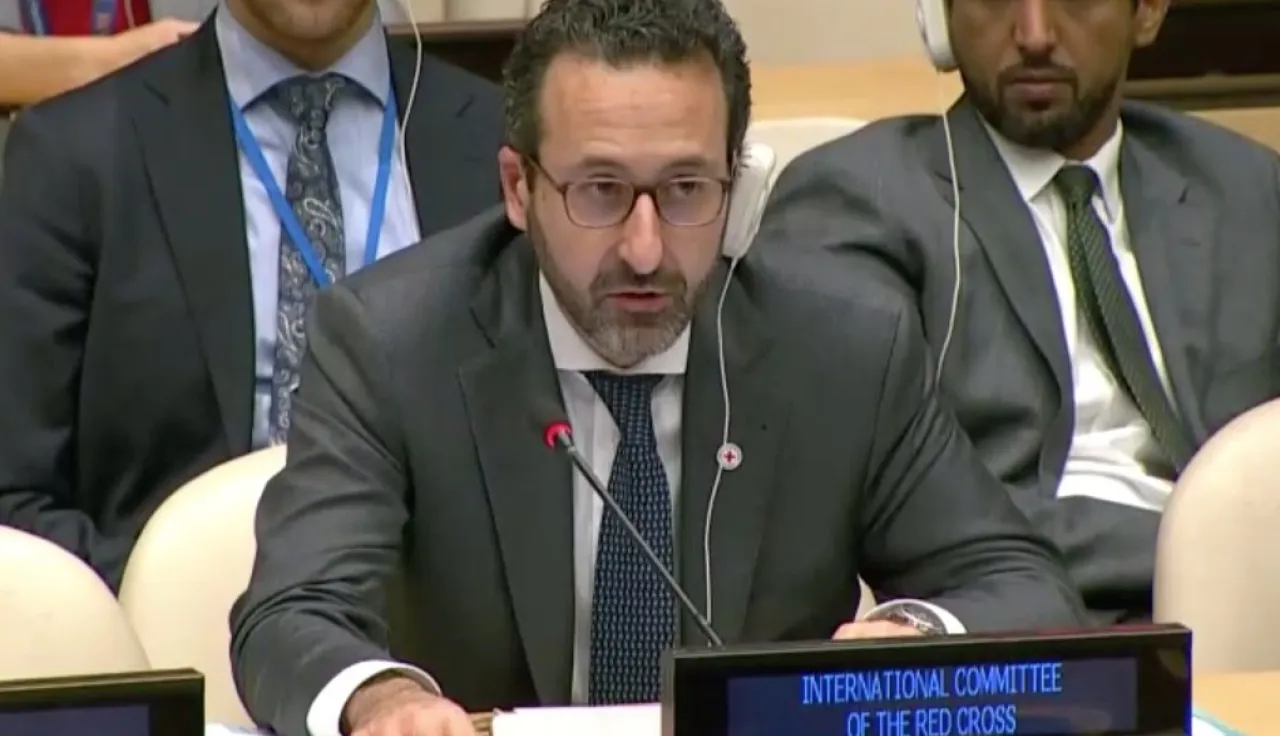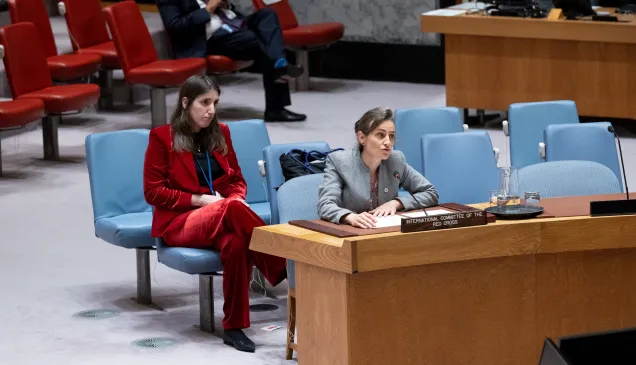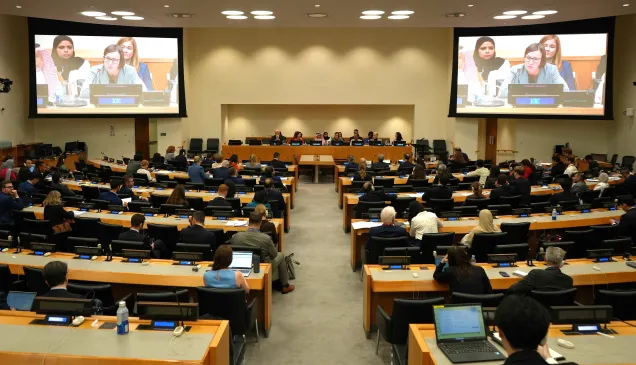As delivered by Mr. Robert Mardini, Permanent Observer to the United Nations and Head of Delegation, ICRC New York
Thank you, Madame Moderator, Excellencies,
The International Committee of the Red Cross (ICRC) is grateful to the Shanghai Cooperation Organisation and Permanent Mission of the Russian Federation for the invitation to participate in this High-Level Event.
Cooperation is necessary in strengthening peace, security and stability. Cooperation is also necessary in respecting limits in armed conflict – which are enshrined in International Humanitarian Law, IHL.
This is why the ICRC highly values its collaboration with the Secretariat of the Shanghai Cooperation Organisation, in Beijing. We also are very pleased to have signed a Memorandum of Understanding with the Shanghai Cooperation Organisation, in June 2017, to frame our collective dialogue on, and implementation of, IHL.
Working to ensure respect for IHL is at the heart of the ICRC's mandate and mission – on legal, policy and operational levels. A related issue, that of counter-terrorism measures taken by States, is one the ICRC has engaged with the SCO. An example of this is the ICRC's address on foreign fighters and their families delivered at the SCO's conference two weeks ago in Tashkent.
Our message then and now is clear. The ICRC condemns all acts of terrorism, whether committed within or outside armed conflict, and irrespective of the perpetrators. Terrorism negates the fundamental principle of humanity and is contrary to the core principles and objectives of IHL. The ICRC respects States' sovereign right to safeguard their legitimate security interests – including through counter-terrorism measures. However, such measures must be consistent with international law, including IHL where applicable. In particular, counter-terrorism measures must not impede principled humanitarian action, as foreseen by relevant IHL rules.
At the Security Council meeting on the links between terrorism and organized crime this July, ICRC addressed our detention work. Annually, the ICRC visits more than 1 million persons in places of detention. In many SCO countries and elsewhere this work involves persons accused of or convicted of crimes related to terrorism, of whom some have also been assessed by security services of having links with organized crime. In all cases, the ICRC recommends humane treatment, individualized risk assessments, ensuring that restrictions are proportionate, necessary and legally-based, proper training for detention staff, and ensuring good order and security for all detainees, not just specific groups.
Of these recommendations, if we are to stress one it would be this: ensure detainees are treated humanely. Inhumane conditions contradict State obligations and are counterproductive to preventing radicalization and violent extremism.
The ICRC stands ready to work with States to secure humane treatment and condition for all detainees, including those accused of or convicted of terrorism.
Thank you.




